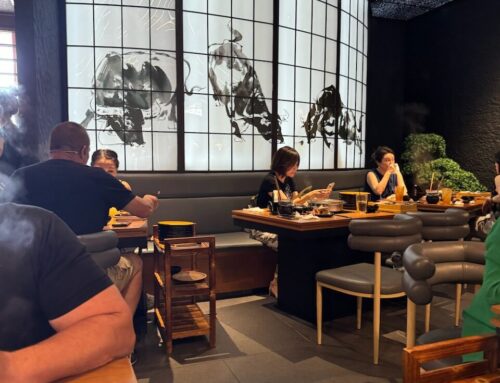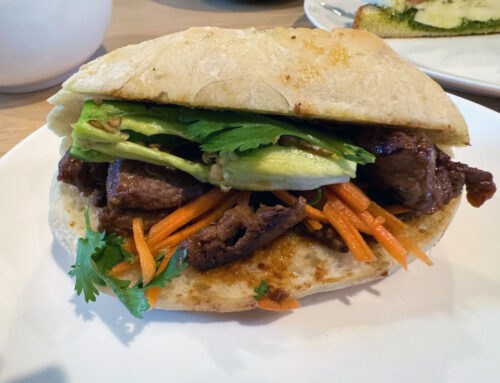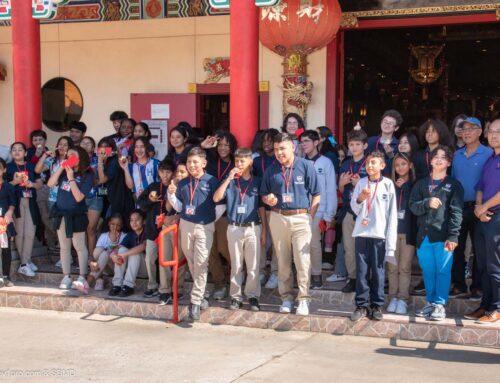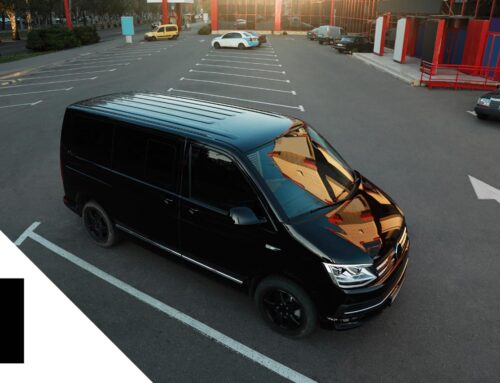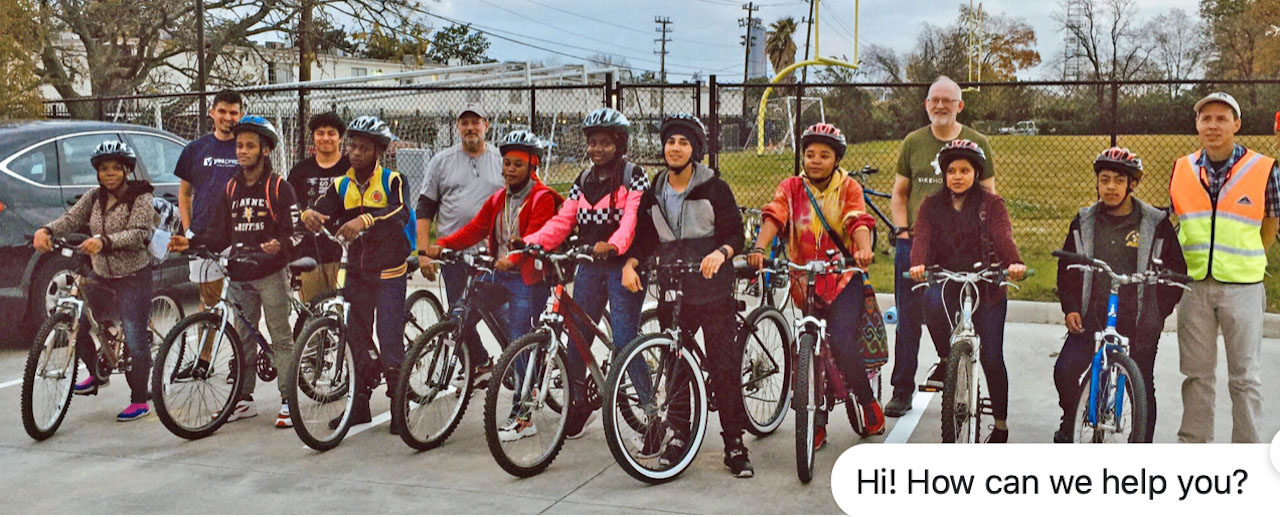
Bill Mintz, formerly a journalist and director of public affairs for an oil company, has always bicycled the Houston area for exercise and recreation. He never considered biking anything other than that in the years before his retirement.
But in 2015, when he was looking for a worthwhile retirement project, he found out through Refugee Services of Texas in Houston about the need for bicycles for refugees and recent immigrants.
“Refugees love bikes,” Sara Kauffman, area director for the organization, told him. It was explained to Mintz that new refugees have few transportation options and that a bicycle assures mobility, which in turn provides access to food and work.
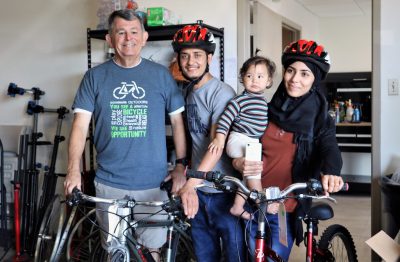
Bill Mintz with bike recipients
Mintz googled bikes and refugees and found nothing in the Houston area. That’s when the idea struck to gather members of his church, Christ the King Lutheran Church in Rice Village, to gather up some bicycles for distribution to immigrants and refugees. From this modest start, a non-profit took form and was later named Freewheels Houston.
“Many refugees either have to walk or use Metro for transportation, and having a bicycle expands their world,” Mintz explained. “Children can get to school, parents can get food at supermarkets instead of relying on expensive convenient stores – it gives them more choices. They can find work and get there on a bicycle. The free in Freewheels means freedom.”
It quickly dawned on Mintz that much more was involved in giving away used and donated bikes. Often the bikes needed repair to be safely used. Not knowing much about bike repair, he found a bike advocate, Alec Lawton, who had taught himself to repair bikes. (Lawton has since moved out of town.) He helped repair some bikes and then Mintz found another ally in the general manager of Rice Bikes, a student-run business at Rice University.
Soon enough, church volunteers and bicycling advocates helped clean and repair bikes, and started fundraising for parts and accessories, such as necessary locks and lights. Mintz also found subsidized programs for bicycle helmets. For several years he worked out of his garage and delivered bikes in a rented truck.
As staff with various resettlement agencies learned of his first delivery to Refugee Services of Texas in Houston, they asked if they could rely on Mintz to furnish 20 bikes a month. The number seemed like a lofty goal, but Mintz and co-volunteers were eager to rise to the challenge.
“Houston is a welcoming place for newcomers with a great infrastructure in place, and I have met so many wonderful people who assist and help resettle refugees,” Mintz said. “There are a lot of generous people here. I realized that Freewheels had to be expanded to help with the need.”
Mintz operated through the church and then formed a non-profit organization in 2019. Now the group has a warehouse in Gulfton, where the heart of the immigrant community finds affordable housing and he has a core of dedicated volunteers.
Many bike recipients live just to the west in the Southwest Management District, which is a magnet for refugees from around the world and lately from Afghanistan.
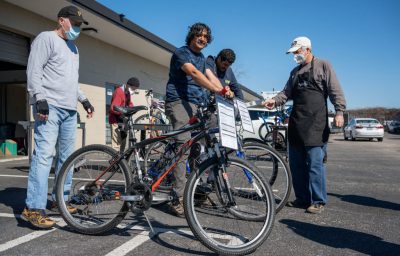 Freewheels has a system of processing bikes and mostly works on weekends in the warehouse, first cleaning and assessing what each bike needs, and then moving it into the repair shop to be fixed by volunteers. They even teach bicycle repair to volunteers and refugees.
Freewheels has a system of processing bikes and mostly works on weekends in the warehouse, first cleaning and assessing what each bike needs, and then moving it into the repair shop to be fixed by volunteers. They even teach bicycle repair to volunteers and refugees.
After the bikes pass a safety checklist, they are ready for distribution.
Bill Chapman, a retired industrial engineer, joined forces with Mintz and came up with necessary systems and processes in receiving, preparing and distributing bikes. He calls himself the shop foreman.
“I wanted to do something in my retirement as I am a producer by nature, and I just loved the mission,” Chapman explained. “I started by learning how to repair bikes.”
Chapman spoke of one time early on when they distributed bikes to a group of children.
“I was filled with joy, and it felt like Christmas to see how happy they were to get these bikes,” he said. “The freedom concept really struck me, as they would no longer have to walk or ride the bus.”
Mintz has upped donations by making sure Houstonians know about his organization through website optimization. If a person in the city wants to know where they can donate a bike, their organization comes up in near the top of web searches. He has found bike repair volunteers the same way.
Safety is of the utmost priority. In addition to providing safe bikes, lights and helmet, Freewheels gives safety lessons as well. The distribution team, called bike connectors, show each recipient how to shift gears, work the brakes, and adjust the seats.
“The goal is to make these families become self-sufficient, and we think we contribute to that goal,” Mintz said.
For now there’s a waiting list for needed bikes.
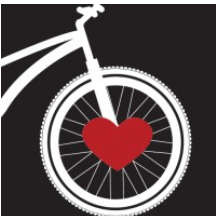 In 2021, Freewheels distributed 190 bikes, and already in the first quarter of 2022, they have assisted 119 people. Around Christmas time, they gave 30 bikes away on a single day.
In 2021, Freewheels distributed 190 bikes, and already in the first quarter of 2022, they have assisted 119 people. Around Christmas time, they gave 30 bikes away on a single day.
“Most of the bikes we repair (now) are given to refugees who fled the Taliban takeover in Afghanistan. Members of these families risked their safety to assist U.S. troops and they should have our support as they start new lives in Houston,” the Freewheels website says. “For many years, we have given bikes to veterans and others emerging from homelessness. We also work with schools; eight students at Klentzman Intermediate School in Alief ISD recently received bikes after achieving perfect attendance records.”
Interfaith Ministries case worker Munir Safi gave two examples of recent refugee clients receiving bikes from Freewheels.
“The teenage girl will no longer have to walk for one hour to her school every day,” Munir said. “The two men will not have to think about transportation to get to their workplace. It really is a game changer.”
For information on donating or volunteering, contact Freewheels Houston at FreewheelsHouston.org
— by Arlene Nisson Lassin



